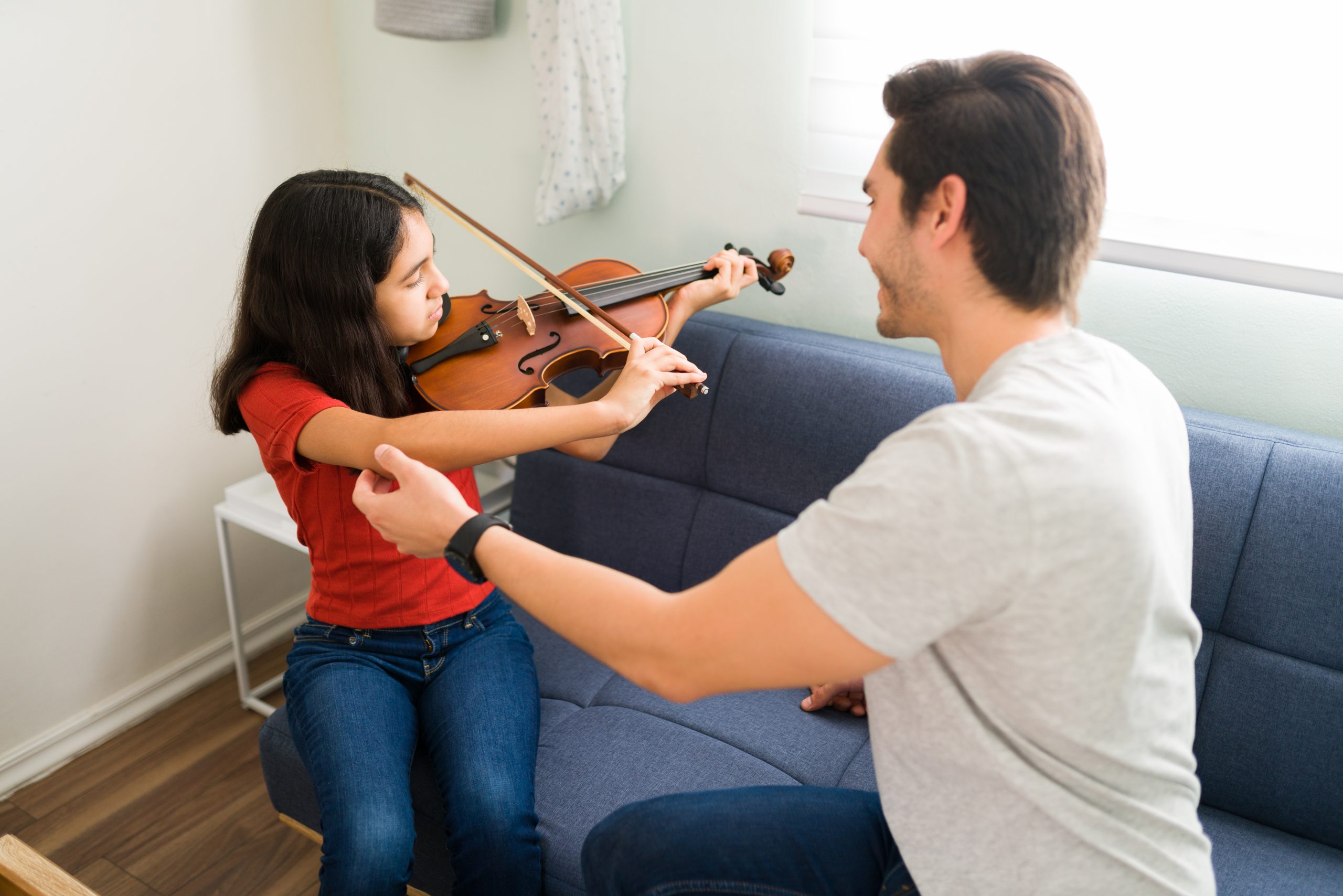Music School
Benefits of In-Person vs. Online Music Lessons
Music lessons have been proven to help with cognitive development for children, including improving memory, concentration, and problem-solving skills while also fostering creativity, self-esteem, and teamwork skills. Among older adults, music lessons can help improve cognitive function, including memory and verbal fluency. They are associated with positively impacting feelings and perceived quality of life while providing a fun and enjoyable way to relax and de-stress, opening the way to multiple opportunities for personal growth and self-expression.
Online Music Lessons: Pros & Cons
One of the pros of taking lessons online is the cost savings. With no travel and transportation costs necessary, you can save money by taking a class from any suitable location. You can also take your class at your own convenient time, even if that means working around pre-existing commitments. However, a barrier in the form of a restricted connection between instructor and student can prove problematic for online lessons. With limited physical contact, some content may be lost due to the lack of proper demonstration to you fully understand. It’s an understatement to say that communication skills play a vital role in providing practical ways to deliver in-depth instruction without missing out on any key components.
In-Person Music Lessons: Pros & Cons
Classes conducted in person by a qualified teacher can be a great experience for aspiring musicians and students. By taking face-to-face lessons, students directly gain feedback from an expert to help them reach their highest potential. Furthermore, students can interact with their teacher, ask questions and receive more hands-on personalised help with technique and theory. That being said, students will have to deal with traveling time and location constraints.
Comparing Benefits of Both Types
Both types of lessons have numerous benefits that will enhance students’ experience. However, it is without argument that the stark differences between the two can lead to varying outcomes. Online lessons pivot around convenience. Being able to have classes at any given time and place accommodates people with busy lifestyles who cannot afford to slot in a few meetings here and there across the week. That said, online classes do come at the cost of other aspects well-covered by in-person music lessons. Besides the personal interaction that enables more effective learning between the teacher and student, having access to physical resources such as instruments and music libraries can enhance the lesson structure. It also provides a learning space with a community and a more hands-on learning experience.
Social Interaction Benefits in-Person
It goes without saying that the advantages of social interaction in a physical class setting are unrivalled, especially when it comes to learning. Through music lessons, students have the opportunity to meet and interact with their teacher, other students, and the music community at large – encouraging collaboration and relationship-building while cultivating a sense of belonging. Interacting in person also sharpens critical social skills such as conversation, reading body language, and building mutual trust. When learning music in person, students gain more profound knowledge about music culture, composition, theory, and performance, which can be challenging to achieve when learning is conducted remotely. Music lessons are fun; learning with others only enhances the experience.
Cost Comparison of In-Person & Online
The cost of music lessons in-person or online can vary depending on the institution and the class. Other factors include the instrument taught and an instructor’s qualifications and experience. However, it is more common for face-to-face classes to cost more than the ones performed online due to the added expenses of renting a space and the teacher’s travel time to the designated class location.
It’s worth noting that the cost of music lessons is not always an indicator of the quality of the instruction. Some highly qualified and experienced music teachers may charge lower rates, while others may charge higher rates due to their reputation or service demand. It’s essential to do your research and shop around to find a music teacher who is a good fit for your needs and budget so that you’re able to make the most out of it.
Choosing the Right Solution
While members of the music industry can come to the unanimous agreement that playing music requires attentive practice and engagement, which is best found in a physical class setting, the deciding factor between both types of lessons is dependent on the flexibility and commitment levels of the student. For some people, working around the timings of commitments is not a given option, and online teaching may be the only way for them to attend the classes. For those who have trouble staying disciplined online, in-person classes are the way forward for them, as there will be physical accountability with the teacher.
Register for a FREE trial with Harmony & Pitch today for music classes in Singapore and get acquainted with professionals who will provide you with only the best learning experience in picking up an instrument and unlocking your best potential with them.




